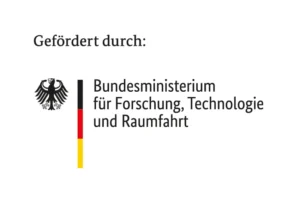Project Introduction
The Innovation Campus Electronics and Microsensors Cottbus – iCampus – is stepping up to drive the transformation of the Lausitz economy into digitalization. The iCampus is a project of five scientific partners: two Leibniz institutes, two Fraunhofer institutes and the BTU Cottbus Senftenberg.
Through the iCampus, its wide range of technical services is to be made available primarily to small and medium-sized enterprises (KMU) in the Lausitz region. Sensors are needed for the digitization of the environment. They form the interface between physical reality and digital processes. Sensors are increasingly used in the medical, environmental and industrial sectors when it comes to monitoring processes. Information such as pH values, pressure, temperature or velocities can be detected in this way. Using standard sensors is not possible in many places. Instead, application-specific sensors have to be developed. These specific sensor developments are to be promoted by the cooperation of research institutions and companies in the iCampus.
The iCampus is Brandenburg’s first project in the German government’s immediate action program for structural change in coal regions.

Our Goals
Establishment as a regional sensor technology hub
Contact point for the development of F&E projects
Technology transfer in the field of sensor technology to the local economy
All iCampus project partners have one common goal:
To contribute to increasing the innovation and competitiveness of regional companies, research institutions and the Lausitz region as a whole, and to create jobs in the high-tech sector.
Area of Action Lausitz
1,1 Million Inhabitants
12.000 km2
approx. 60,000 manufacturing companies
Project Background
In Brandenburg, Saxony and North Rhine-Westphalia, the phase-out of coal-fired power generation is demanding a fundamental reorientation from many employees and companies, as they are being deprived of the basis of their employment. Due to the energy turnaround and the associated coal phase-out, a structural change must take place in the coal regions.
One region particularly affected is Lausitz, which stretches across southern Brandenburg and eastern Saxony. At its peak in the 1980s, around 100,000 people worked there in the coal mining and power generation environment. Even today, up to 25,000 jobs are attributed to this sector – a significant proportion in a rather structurally weak region. There is a threat of an exodus of highly qualified and, above all, young workers, which will exacerbate the already existing shortage of skilled workers and accelerate demographic change.
Can research and development (F&E) help to counteract this development? Quite clearly: Yes.
Without a significant strengthening of application-oriented research and development, the long-term success of such economic and social transformation processes is fundamentally called into question.



